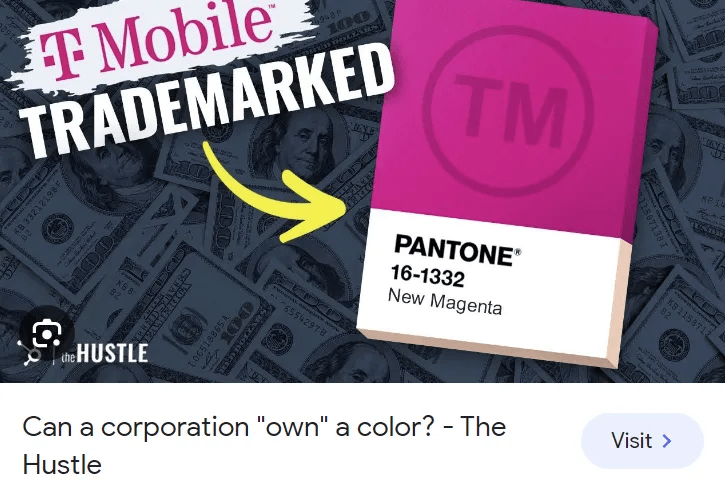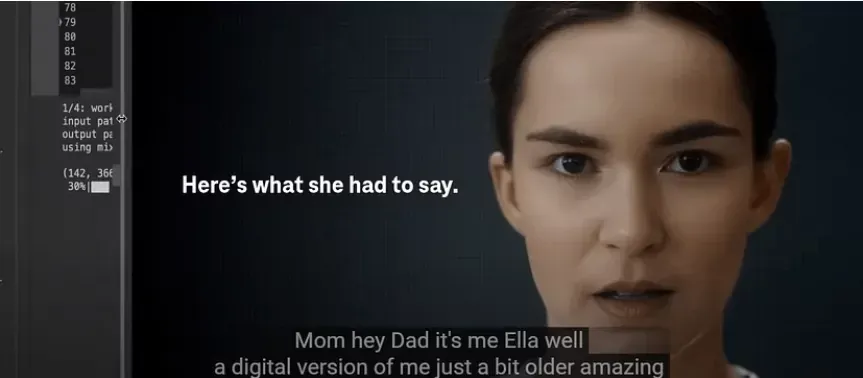This may come as a surprise to those recently impacted by viral clips of the “Ella” video purporting to be about privacy, but at its core this is nothing more than an emotionally manipulative ad for a phone company.

The cringe begins with the ominous display of a high contrast, all-caps warning that “some viewers may find the video disturbing”. I’m not too proud to admit that I was indeed disturbed, but probably not for the reason they hoped..
It’s no secret that fearmongering motivates the victim to impulsively share easily digestible online content. By exploiting fear, uncertainty and doubt (FUD), unscrupulous marketers easily push dubious narratives to interrupt, distract and create panic in our vulnerable lizard brains.

Clocking in at under 3 minutes, this lurid experiment is a master class in concocting and spreading emotionally charged messaging stuffed with
- platitudes (“children’s data needs special protection”),
- tearfully desperate pleas (“I don’t want to be humiliated by everyone at school”),
- shameless accusations (“I know you love me and would never do anything to harm me so … please … “)
- and for the keen watcher, even Orwellian undertones (“In order to prevent abuse, we are all called upon.”).

Although the vivid scenarios are purely theoretical, the contrived video unambiguously accuses today’s parents of endangering their children. Okay, maybe not all of us: only 75%!

In a dystopian future, the fictional “Ella” laments having been stripped of both identity and dignity by what are portrayed as the borderline criminally negligent actions of her own parents on social media, while we helplessly watch the entire Dickensian scene through the window on our monitor.

At the conclusion of the punishing, rapid-fire rhetoric presented to the viewer through the girl’s heartbroken, transfixed parents, the video all but invokes the Ghost of Christmas Yet to Come, as it tries to bully us into immediately seeking solace, guidance and absolution by running into the open arms of a certain phone company.

Indeed, the mastermind behind this emotional rollercoaster is the multinational Deutsche Telekom, ostensibly a different beast from its distant ancestor, the Reichspost* but evidently no stranger to high-impact propaganda.

Unsurprisingly, that global conglomerate – now the world’s third largest telecommunications operation – is controlled by the German government operating in 13 countries under various brands, including T-Mobile.
Yes, this is the same company that recently sued Lemonade Insurance** for using the color magenta (#freethepink!). But I digress.

While the English speaking advertisement is clearly meant to circumnavigate the globe spreading what it calls “virtual privacy awareness”, what is not lost in translation is the uncomfortable reality that this telco recently found itself at the wrong end of some of the largest violations of privacy law in the history of Europe’s General Data Protection Regulation.***

Lest we feel like the prize Turkey hanging in the Poulterer’s window, let’s have a look at just three of the threats currently facing the 90% of kids (****) lucky enough to have access to connected computing devices:
- Malware and data breaches. Some 72% of children are facing threats including hacking, phishing and viruses because platforms aren’t incentivized to encourage pseudonymous access, websites are not compelled to hire developers trained in secure coding and companies in general have little incentive to invest in adequate preventative, detective and corrective controls.
- Gamified distractions obscuring a distinct lack of actual digital literacy to prepare them for the world of tomorrow: they can create mayhem on Fortnite like nobody’s business, but can they discriminate between clickbait, disinformation, dark patterns and scams when conducting online research?
- Consent grab: Complicity between educational institutions, privacy invasive technologies masquerading as EdTech, and the shady private equity that fund the behavioural surveillance, big data analytics, profiling and targeting of children for that most banal of motives: profit.*****

Setting aside Ebenezer Scrooge and his spooky Ghosts for a moment, there’s no denying that AI is creating vast opportunities for abuse, today. But whether the imaginary Ella’s face is photoshopped onto Stormy Daniels’ body or an entire video is fabricated from scratch using a school photo is a pointless argument. There are laws, regulations and technical standards in the works that we — you and I; us parents and educators; we, the taxpayers; citizens of the world — can have a real impact onto, today.
How? Simply by persistently shaping the discourse rather than passively re-sharing dank memes lazily captioned ‘OMG!!’.

Penned with love and data.
Definitions from: *Encyclopedia.com **Business Wire *** IAPP.org **** Boston Consulting ***** UNICEF and The KnowledgeFlow Cybersafety Foundation

